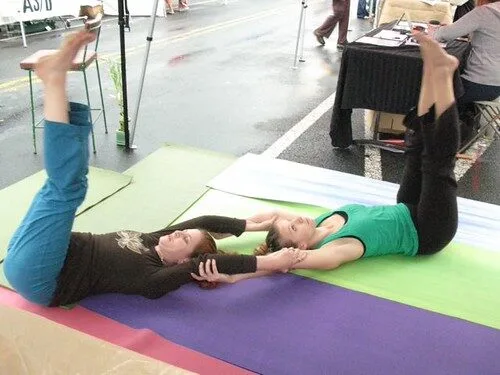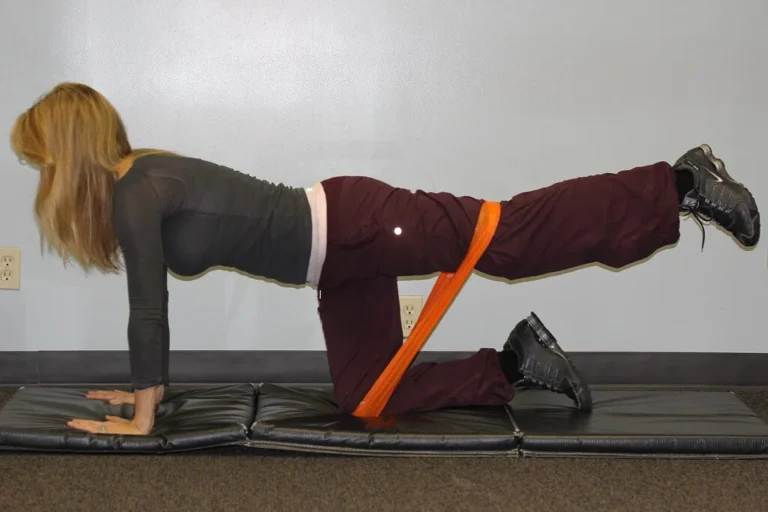With consistent physical activity, you can enhance your self-esteem and confidence, both in the gym and in everyday life. Engaging in fitness routines not only improves your physical health but also fosters a positive body image, empowering you to face challenges head-on. As you set and reach fitness goals, you build a sense of accomplishment that transcends workouts, translating into greater resilience in your daily pursuits. By understanding how fitness shapes your mindset, you can harness its benefits to transform your life, inside and out.
Key Takeaways:
- Engaging in regular physical activity fosters a sense of accomplishment, enhancing self-esteem and instilling a belief in one’s abilities both in and out of the gym.
- Fitness challenges encourage resilience and the ability to overcome obstacles, which translates to increased confidence in facing daily life challenges.
- Building a supportive community through fitness activities can strengthen social connections, further boosting confidence and a sense of belonging.
The Psychological Benefits of Physical Fitness
Engaging in regular physical fitness has profound psychological benefits that extend beyond the gym. You may experience a surge in mood, increased self-esteem, and an enhanced sense of well-being. Studies show that consistent exercise can reduce symptoms of anxiety and depression, promoting a more optimistic outlook on life. By setting and achieving fitness goals, you build resilience and foster a positive self-image that permeates other areas of your life, ultimately leading to improved confidence and personal growth.
How Exercise Alters Brain Chemistry
Exercise triggers the release of endorphins, dopamine, and serotonin, neurotransmitters that significantly affect your mood and overall mental health. During physical activity, your body produces these chemicals, which act as natural mood lifters, creating a sense of euphoria often referred to as the “runner’s high.” As you engage in consistent exercise, these biochemical changes can lead to lasting improvements in your mental well-being, helping alleviate feelings of stress, anxiety, and depression.
The Connection Between Fitness and Mental Resilience
Building mental resilience through fitness comes from the consistent effort and discipline involved in regular exercise. Overcoming physical challenges in the gym fosters a mindset that translates into everyday life situations. You may find yourself better equipped to handle stressors, setbacks, and adversity, reinforcing your ability to persevere in the face of difficulties. Strengthening your body complements the development of your mental fortitude, empowering you to tackle life’s challenges with tenacity.
Research supports the idea that individuals who engage in regular physical activity often report higher levels of mental resilience. For instance, a study published in ‘Psychological Medicine’ indicates that people who exercise regularly are 50% less likely to experience anxiety or depression compared to those who do not. The key lies in the routine of pushing your limits, whether through strength training or endurance sports. Each workout not only enhances physical capabilities but teaches you discipline and determination. These qualities serve as building blocks for facing life’s uncertainties, ultimately cultivating a stronger, more resilient mindset.
Building a Confident Mindset Through Goal Setting
Setting clear and achievable goals lays the groundwork for a confident mindset. As you outline your fitness journey, these goals become benchmarks on your path to self-discovery and growth. Success in achieving these milestones not only boosts your self-esteem but also reinforces the belief that you are capable of overcoming obstacles, both inside and outside the gym.
The Power of Achievable Milestones
Focusing on achievable milestones breaks your larger goals into manageable steps, making the journey less daunting. Each milestone reached serves as a mini-celebration of progress, reinforcing your commitment and motivating you further. Whether it’s increasing the weight you lift or improving your cardio endurance, these small victories empower you, creating a ripple effect of confidence that transcends your fitness endeavors.
Transforming Setbacks into Strengths
Setbacks are often perceived as failures, yet they hold the potential for immense growth. By re-framing these moments, you learn resilience and adaptability. You transform frustration into determination and uncover opportunities for continuous improvement. Embracing this mindset enables you to see challenges as stepping stones toward success rather than barriers.
Consider the experience of an athlete who faces an injury—a setback that initially feels disheartening. Instead of succumbing to negativity, this individual chooses to focus on rehabilitation and alternative training methods. Over time, they emerge stronger, not only physically but also mentally. This journey illustrates that embracing hardships can lead to newfound strengths, enhancing your overall self-confidence and preparing you for future challenges. Every setback can teach you invaluable lessons, fostering an unshakeable belief in your abilities.
The Role of Community in Confidence Development
Being part of a fitness community significantly accelerates your confidence-building journey. When you surround yourself with like-minded individuals, you create a supportive environment that fosters motivation and growth. Sharing your challenges and triumphs with others not only helps you stay accountable but reinforces the belief that you can achieve your fitness goals. Engaging with a community can make even the most daunting workouts feel more approachable and enjoyable.
Group Activities and Social Support
Participating in group activities transforms your fitness journey into a social experience. Whether you’re joining a yoga class, a boot camp, or a running club, the camaraderie built through shared struggles enhances your commitment. As you progress alongside others, you gain not only physical strength but also a deep sense of belonging that directly contributes to your confidence. Finding motivation in shared progress and encouraging each other fosters a positive atmosphere that boosts overall morale.
Accountability Partners: Strength in Numbers
Having an accountability partner can substantially elevate your fitness achievements. Teaming up with someone who shares similar goals ensures that you remain committed and focused. With mutual check-ins and support, you’re less likely to skip workouts or stray from your dietary plans. The shared journey not only keeps you accountable but also generates a sense of camaraderie that enhances your confidence through teamwork.
Accountability partners add an extra layer of motivation that keeps you progressing and striving for your goals. Research shows that individuals who train with a buddy are significantly more likely to maintain their workout routines compared to those who go solo. The emotional support and encouragement shared within the partnership create a dynamic where both parties inspire each other to push boundaries. Celebrating milestones together further amplifies your sense of achievement, dramatically enhancing your self-esteem and confidence both in and outside the gym.
Beyond the Gym: Applying Fitness Confidence in Daily Life
Your time spent in the gym does more than just sculpt your body; it equips you with a sense of confidence that effortlessly seeps into your daily life. The resilience you build while tackling challenging workouts translates into a greater willingness to face obstacles outside the gym. Whether you’re making a presentation at work or striking up a conversation with someone new, the self-assurance gained through fitness can uplift your interactions and decisions, allowing you to present your best self.
Enhancing Professional Presence and Communication Skills
A boost in fitness can transform your professional demeanor, enhancing both your presence and communication abilities. Engaging in regular physical activity helps shape not only your body but also your posture, making you appear more assertive and approachable. You find yourself speaking with clarity and confidence, whether it’s in a meeting or networking event, and your colleagues and clients respond positively to your newfound energy and enthusiasm.
How Fitness Translates to Better Personal Relationships
Improved fitness fosters healthier personal relationships by nurturing greater self-awareness and emotional regulation. As you engage in regular workouts, you become more attuned to your body and emotions, leading to deeper connections with those around you. With increased confidence, you open yourself to vulnerability, allowing you to share thoughts and feelings with friends and family. This openness encourages support and strengthens bonds, creating a positive feedback loop that boosts personal interactions.
As you strengthen your fitness journey, the benefits extend into your relationships. Feeling good about yourself allows you to participate more actively in social engagements, seeking out new friendships and nurturing existing ones. You become more empathetic and understanding, as physical activity often provides mental clarity that enhances your ability to listen and communicate effectively. In turn, you inspire those around you to adopt a healthier lifestyle, thus creating a supportive community that thrives on shared experiences and encouragement.
Sticky Habits: Maintaining Fitness and Confidence
Long-lasting confidence stems from the ability to create sticky habits that ensure your fitness journey remains on track. Establishing habits that integrate seamlessly into your daily routine fosters a sense of achievement and reinforces your self-belief. Commitment to consistency is key; when you make fitness a non-negotiable part of your life, the results become tangible, and your confidence soars.
Creating a Sustainable Routine
Designing a sustainable routine requires aligning your fitness goals with realistic time commitments. Start by scheduling workouts at times that suit your lifestyle, whether it’s early morning or after work. Incorporate a mix of activities you enjoy, making it easier to stick with your plan. The goal is to create a rhythm that feels natural and fulfilling rather than a chore you dread.
The Importance of Celebrating Progress
Recognizing your achievements, no matter how small, is vital for enhancing your self-esteem and motivation. When you take the time to celebrate progress, whether it’s hitting a new personal record or simply completing a week of workouts, you’re reinforcing positive behaviors. This not only boosts your confidence but also creates a feedback loop that encourages you to push further and unlock new levels of fitness and self-assurance.
Celebrating progress can take many forms. Consider keeping a fitness journal to document your milestones, or share your achievements on social media to engage with a supportive community. Research shows that individuals who celebrate small wins are more likely to maintain their fitness routine long-term. By acknowledging your dedication and resilience, you cultivate a positive mindset that propels you and strengthens your commitment to your fitness journey.
Conclusion
Ultimately, building confidence through fitness positively impacts your life beyond the gym. As you consistently challenge yourself physically, you cultivate resilience and self-assurance that translate to everyday situations. Each workout not only strengthens your body but also bolsters your mental fortitude, helping you tackle personal and professional challenges with greater ease. Embracing your fitness journey empowers you to not just conquer physical goals but to also carry that newfound confidence into all aspects of your life.
Q: How does physical fitness contribute to boosting self-esteem?
A: Engaging in regular physical activity leads to improved body image and promotes a sense of accomplishment. When individuals achieve fitness goals—whether it’s lifting heavier weights, running a specific distance, or mastering a new exercise—they gain a sense of pride in their progress. This improvement in self-perception directly translates to enhanced self-esteem and confidence in various aspects of life, from personal relationships to professional endeavors.
Q: What role does social interaction in fitness environments play in building confidence?
A: Fitness settings, such as gyms or group classes, often foster social connections among participants. These environments encourage support and camaraderie, which can significantly affect one’s confidence levels. Engaging with others who share similar fitness goals can lead to an increased sense of belonging, motivation, and encouragement, ultimately helping individuals feel more confident in social situations both inside and outside the gym.
Q: How can achieving fitness milestones affect mental resilience and confidence?
A: Setting and accomplishing fitness milestones can significantly enhance mental resilience. As individuals work towards their fitness goals, they often face challenges and setbacks. Overcoming these obstacles helps to develop a growth mindset, reinforcing the belief that one can tackle difficulties. This newfound resilience translates to other areas of life, empowering individuals to approach challenges with confidence, whether it’s in their careers, education, or personal relationships.
















































